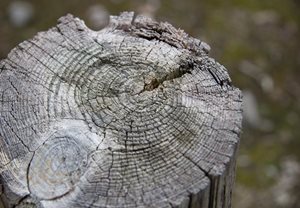What is better than the smell of pine trees in the forest on a winter’s day walk? We love trees - tall, small, evergreen, deciduous, and some bearing fruit. Trees are such a vital part of our earth’s ecosystem, providing food and shelter and at the same time absorbing carbon dioxide, while producing oxygen.
 So much is our love of trees, that only a few weeks ago we put them up in our homes and decorated them! I came across a staggering statistic, the natural Christmas tree market in the UK is worth £384 million per annum!
So much is our love of trees, that only a few weeks ago we put them up in our homes and decorated them! I came across a staggering statistic, the natural Christmas tree market in the UK is worth £384 million per annum!
The oldest tree in the world
It’s a well-known fact that every year a tree puts on another ‘ring’ to its trunk. So, if we want to know how old a tree is, or was, we can count the rings of a felled tree. It is amazing just how old some trees around the world are. The oldest living tree is called ‘Methuselah’. Found in California's White Mountains, it is said to be 4,855 years old. Imagine the changes this tree has seen!
Tree specialists tell us that not only do the rings of a tree signify its age, by analysing them they can also tell a lot about the climate and environment the tree has lived through in each year of its life.
At the beginning of another year, we all need to remember we will ‘lay down another ring’ in the story of our own lives - one that cannot be erased. Some of us have more ‘rings’ than others and maybe are feeling the effects of all our long winters! I ask myself, how many of those ‘rings’- the years of my life - have been lived without much to show for themselves? Barren years of living, busyness maybe, but not much real growth of character, or spiritual worth.
A tale of two trees
It was a tree in the midst of the Garden of Eden which set the scene for Adam and Eve’s rebellion against God. The fruit of every tree was theirs to enjoy, bar one. That one tree, only one, about which God said, “‘You may surely eat of every tree of the garden, but of the tree of the knowledge of good and evil you shall not eat, for in the day that you eat of it you shall surely die’” (Genesis 2:16–17).
Then came the voice of Satan in a serpent’s mouth, Eve listened and reached out and took the fruit, ate some and shared it with Adam, her husband. It seems a small deal, but far from it. It was saying to God ‘…we know better…we reject you’. And so came ‘The Fall’, a world of chaos and brokenness and ultimately death.
Roll on many, many years. A tree was felled to make a cross on which the only perfect person who has ever lived would die. God’s son, Jesus, on that tree-turned into a cross, was crucified, and would take the blame for a rebel world, offering new and eternal life to everyone who repents and believes in Him.
At the beginning of this New Year, before we get to lay another ‘ring’ as it were, make sure we begin it trusting in Jesus as our Saviour and living to serve Him. Make Him Lord of the ‘rings’ of your life.
 Ian was brought up on a dairy farm near Limavady. He served as a minister in Ballyroney and Drumlee congregations in south County Down and in Moneydig, County Londonderry. He has had to retire due to illness and now offers support and counselling to others going through a cancer experience.
Ian was brought up on a dairy farm near Limavady. He served as a minister in Ballyroney and Drumlee congregations in south County Down and in Moneydig, County Londonderry. He has had to retire due to illness and now offers support and counselling to others going through a cancer experience.
His blog appeared in a fortnightly column entitled ‘Good News For the Countryside’, in today’s Farming Life, where people from a farming background, or who have a heart for the countryside, offer a personal reflection on faith and rural life.
Image by LeoNeoBoy from Pixabay
You can look at other blogs in this series here. If you would like to talk to someone about any of the issues raised in this article, please email Rev Kenny Hanna, PCI’s Rural Chaplain at ruralchaplain@presbyterianireland.org or call him on 07938 488 372.